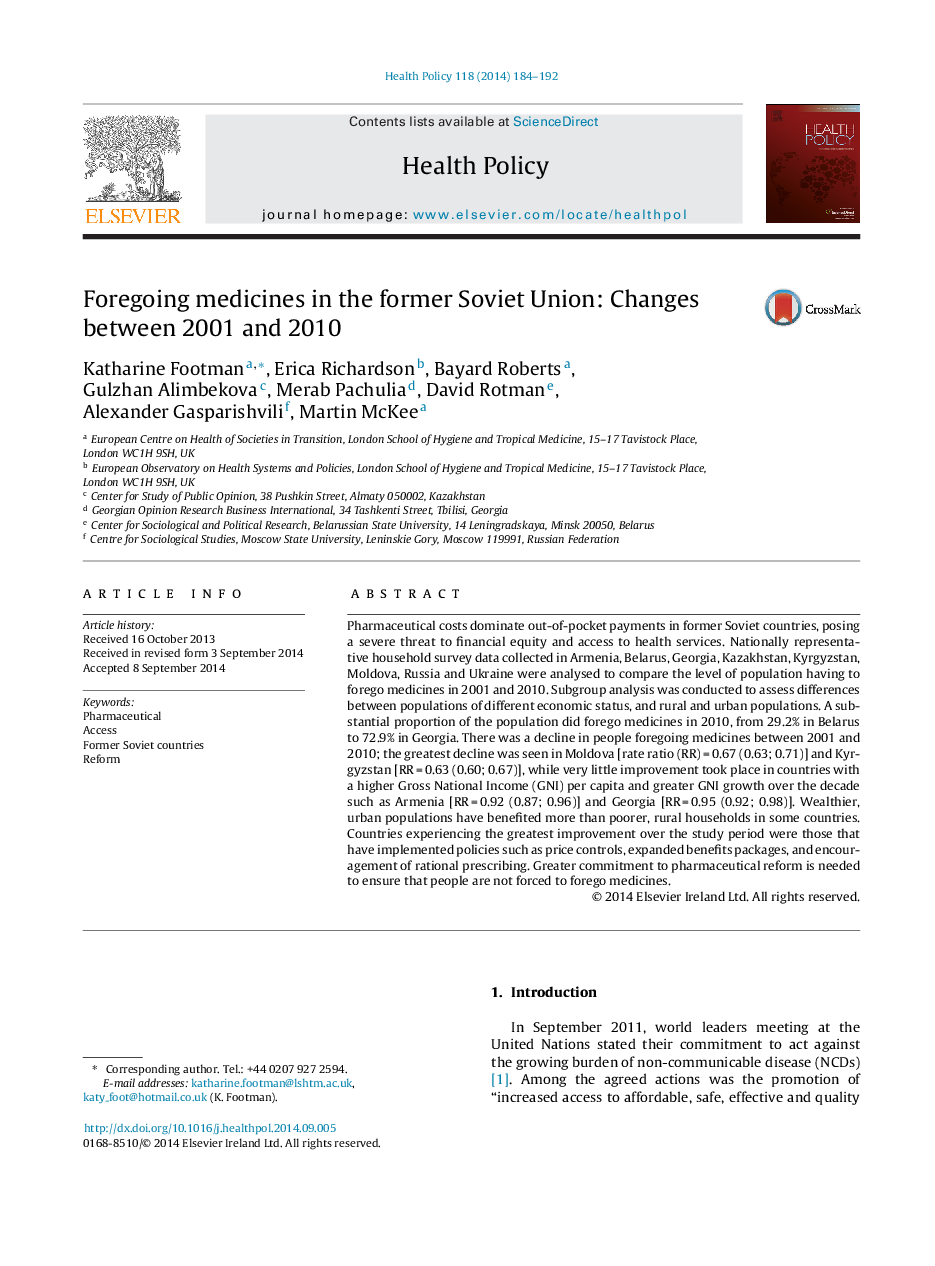| کد مقاله | کد نشریه | سال انتشار | مقاله انگلیسی | نسخه تمام متن |
|---|---|---|---|---|
| 6239671 | 1279005 | 2014 | 9 صفحه PDF | دانلود رایگان |
- We use data from repeated household surveys in 8 former Soviet countries.
- We compare the proportion of the population foregoing medicines in 2001 and 2010.
- A substantial proportion continue to go without medicines, particularly poor, rural households.
- However, there was an improvement in most countries over this time period.
- Improvements were greatest in countries with more progressive policies on price controls and rational prescribing, despite lower incomes.
Pharmaceutical costs dominate out-of-pocket payments in former Soviet countries, posing a severe threat to financial equity and access to health services. Nationally representative household survey data collected in Armenia, Belarus, Georgia, Kazakhstan, Kyrgyzstan, Moldova, Russia and Ukraine were analysed to compare the level of population having to forego medicines in 2001 and 2010. Subgroup analysis was conducted to assess differences between populations of different economic status, and rural and urban populations. A substantial proportion of the population did forego medicines in 2010, from 29.2% in Belarus to 72.9% in Georgia. There was a decline in people foregoing medicines between 2001 and 2010; the greatest decline was seen in Moldova [rate ratio (RR)Â =Â 0.67 (0.63; 0.71)] and Kyrgyzstan [RRÂ =Â 0.63 (0.60; 0.67)], while very little improvement took place in countries with a higher Gross National Income (GNI) per capita and greater GNI growth over the decade such as Armenia [RRÂ =Â 0.92 (0.87; 0.96)] and Georgia [RRÂ =Â 0.95 (0.92; 0.98)]. Wealthier, urban populations have benefited more than poorer, rural households in some countries. Countries experiencing the greatest improvement over the study period were those that have implemented policies such as price controls, expanded benefits packages, and encouragement of rational prescribing. Greater commitment to pharmaceutical reform is needed to ensure that people are not forced to forego medicines.
Journal: Health Policy - Volume 118, Issue 2, November 2014, Pages 184-192
